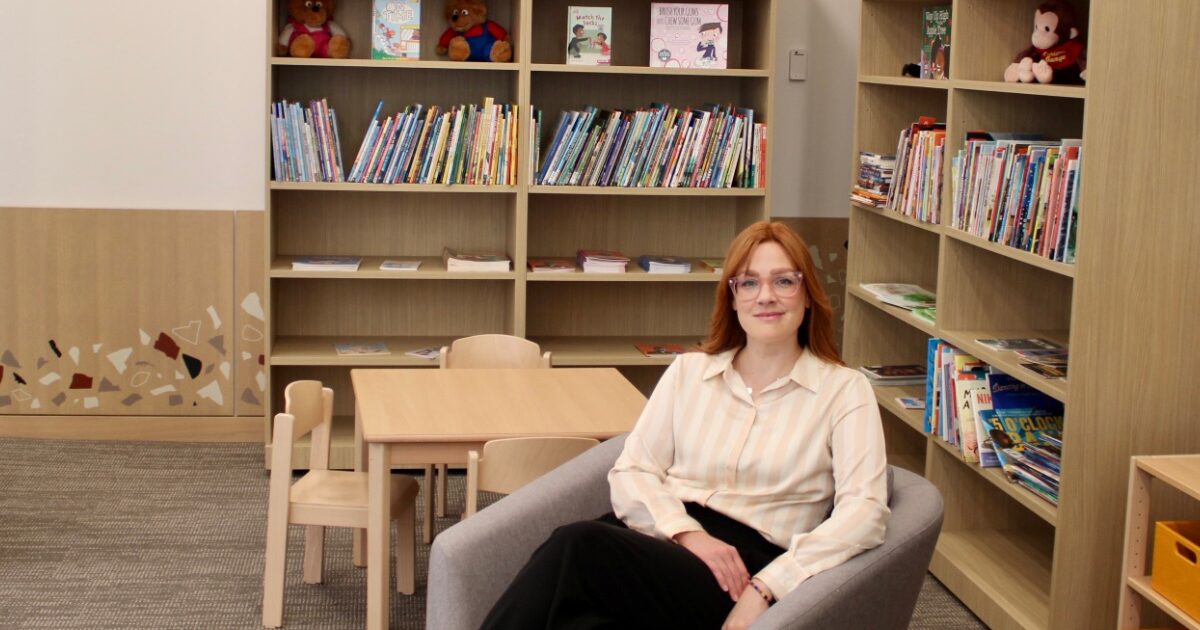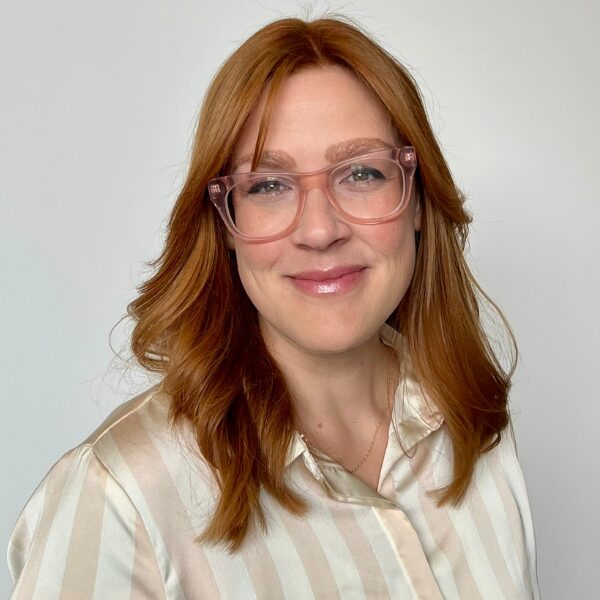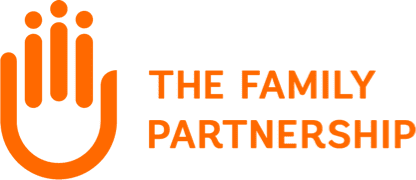Q&A with Development Manager Sarah Williams

Sarah Williams joined The Family Partnership as the new Development Manager in March. We sat down with Sarah to talk about her experience, community engagement, and her priorities in the coming year.
Tell us a little about your background—what drew you to nonprofit work and eventually to The Family Partnership?

I have a background as a special education teacher, a legal advocate in child protection, and as a fundraiser for youth and family shelters. In all those roles, I have seen how systems that are meant to serve children and families often fail to meet their needs. The systems themselves are difficult to navigate and may cause additional harm to families already experiencing trauma caused by racial and economic inequity.
My experience as a legal advocate in child protection left a deep and lasting impression on me. I watched caregivers work tirelessly to meet the requirements of rigorous case plans with little resources or support. I wondered to myself, who is here to help the parents, as they work to meet the needs of their children? That’s why I’m so excited to work for The Family Partnership where caregivers can get that support through our Family Home Visiting programs and Mental Health Therapies.
In my time at People Serving People, I learned how early childhood education is a vital piece of housing stability for families. When families have quality childcare, caregivers can rest easy knowing that their child is safe while they are at work or pursuing an education. The income parents earn helps secure a safe and stable home for their children. Early childhood education is a once-in-a-lifetime opportunity to set children up for success far into the future. Four Directions, TFP’s multicultural and therapeutic preschool, provides screenings, checkups, and therapies to ensure that children are growing and thriving at this pivotal time in their lives.
How has your experience in communications and community engagement shaped your approach to development work?
My previous marketing experience showed me the importance of awareness and visibility in building a following. That experience shaped my approach to fundraising because I emphasize the “one to many” fundraising approach where you are speaking to a larger audience, whether that’s through digital communications, mailed correspondence, or in-person gatherings. You never know who might connect with your mission, so you share message broadly. Awareness is the first step in the journey. Once you get that first response, whether it’s a reaction to a social media post or an event invitation, you can deepen that relationship.
What are your top priorities in your first year as Development Manager?
I want to get to know the existing community that supports The Family Partnership. That means connecting to program staff, board members, and donors. Once I do that, I will strategize and work towards strengthening and expanding that community. TFP has a strong traditional fundraising approach that is based on philanthropic relationships. I am excited to learn about that while also doing broader outreach to possible new donors.
You’ve mentioned a focus on growing our donor base and engaging a new generation of donors. What is your vision for that work?
I truly believe in the power of the many. When we all come together, bringing whatever we have to offer, we’re unstoppable. Everyone has different gifts and talents. One person may give financial support; another may spread the word; another may volunteer their time. In terms of fundraising, I see how every single gift adds up. Every gift, of any size, contributes to the end goal and makes a difference. So, I’m excited to bring my marketing experience to help spread the word about TFP and to add to the already incredible base of TFP advocates.
Why is it important that our donor and volunteer communities reflect the families we serve?
When donors or volunteers can see themselves in the families we serve, they feel a stronger connection to our mission. All volunteer work and fundraising must center the dignity of families and that becomes easier and more natural when donors, volunteers, and families have shared lived experiences.
What role do events and community storytelling play in your development strategy?
In-person gatherings and storytelling are both important ways to build connection and a sense of shared humanity. Consequently, both are key to growing support for a mission. I believe in the power of strength-based storytelling to center the human experience behind our programs. I want to tell participant stories that evoke positive emotions and reactions, stories of their successes that supporters can connect to. Doing that during events is also powerful because those positive feelings are contagious.
If you’d like to learn how you can support TFP through a gift of time or money, you can find more information on ways to give here.
